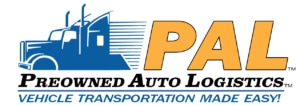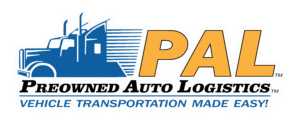The Great Recession Changed the Way Car Dealerships Do Business – For Good
Between 2007 and 2010, the United States experienced the most serious economic downturn since the Great Depression. It affected nearly every industry, and it was particularly hard on the automotive industry. Dealerships were forced to make changes to better serve their customers and keep their businesses afloat. Some of these changes have altered the landscape of the auto dealership industry for good.
The Impact of the Great Recession on Car Dealerships
The Great Recession made some business practices already in place more pronounced. Two practices in particular were the marketing of new cars to qualified customers and changes to the previously-neglected used car market.
Car dealerships were accustomed to making their money by selling primarily new vehicles. In the pre-Recession era, they sold new models to both wealthy consumers and those in the middle class alike. The economy rolled along smoothly, automakers offered employee pricing for everyone, and fewer dealerships sold used cars – some forgoing this market altogether.
The Used Car Market Came Into Play Once the Economy Tanked
Since the Great Recession, the used car market in the United States has experienced moderate growth in contrast to the declining new car market. In other words, used car sales have continued humming along while new car sales have faltered. For dealers across the country, this shift meant they had to adapt, or risk losing their business.
It took some re-education. Dealers who once paid little attention to the used car market suddenly needed to follow used car auctions in order to meet their customers’ changing needs. And since travel budgets were often cut, too, buyers had to get used to the online market – fast.
Today, as dealers get more savvy about buying and selling used cars online, they also change the way they market new models to wealthier clients. Given tough competition and continued economic constraints, car dealers realize they won’t “make it up on volume” as the saying used to go. Instead, they fine-tune their lineups and prices to appeal to buyers who have enough money to be choosy.
Dealerships Have Adapted as Consumers Have Changed Their Behavior
Even a decade after the worst of the Recession, many people have cut back on driving. Annual sales have not bounced back to their previous heights, and the percentage of working adults buying new cars has dropped. Folks who once wanted to buy the newest models now hold on to their cars longer. Some consumers use services like Lyft or Uber instead of purchasing cars for themselves. Still others look for used cars instead of new ones.
To accommodate these consumer trends, dealers have broadened their offerings for customers, allocating funds and personnel to their used-car and service departments. There’s a growing need for Customer Relationship Management (CRM) software so dealers can market to customers who need regular service.
Because customers are more tech savvy, dealers can’t assume that they hold the cards in price negotiations with consumers. Customers come in already knowing the prevailing price in their market for trade-ins and new vehicles. Transparency is key; dealers who want to thrive in this new era price their vehicles appropriately and reach out to their customers online.
Dealers Need Reliable Shipping Now More Than Ever
While the Great Recession didn’t bring the auto industry to a grinding halt, it did force dealers across the country to change their old ways of doing business.
Let us know what you think! Have you altered your business practices to meet shifting consumer behavior?
If you need reliable shipping to get quality used cars onto your lot faster, reach out to the pros at PreOwned Auto Logistics. We’d like to hear about your experiences in the brave new world of online car buying. We’re also happy to chat with you about your vehicle transport needs.



